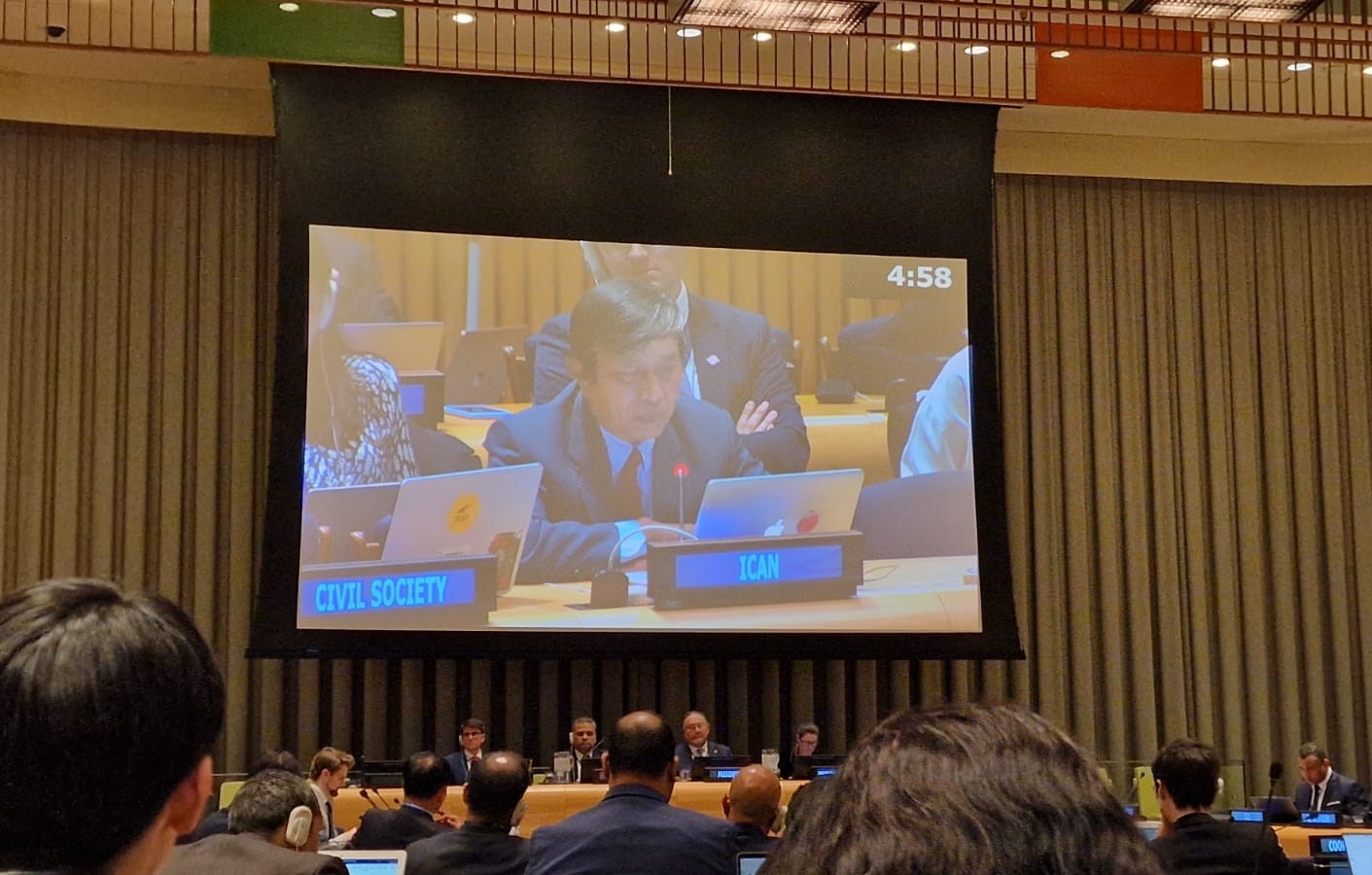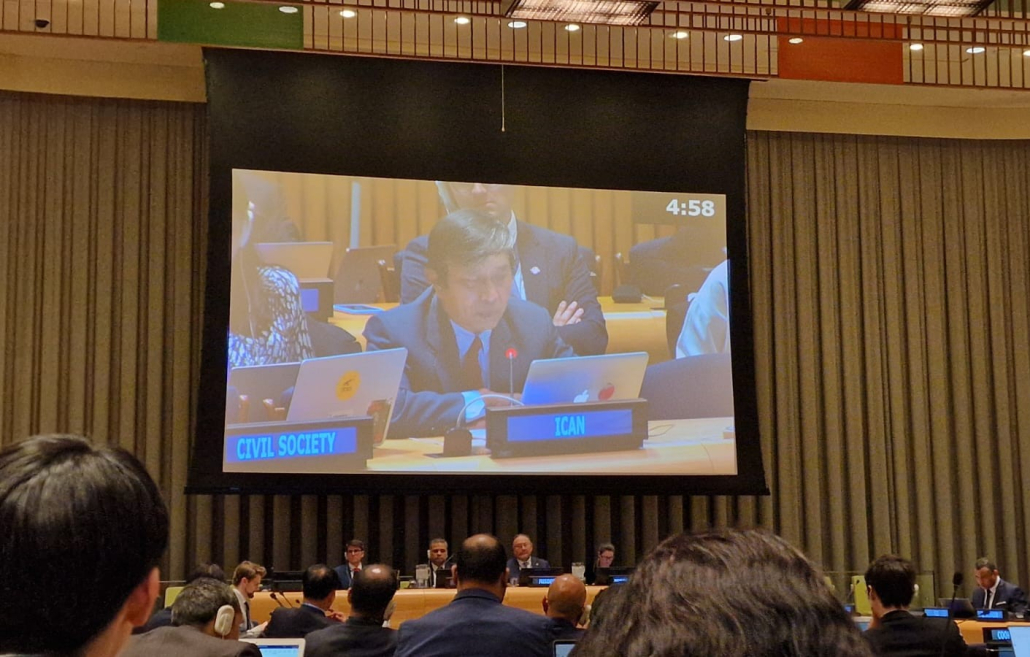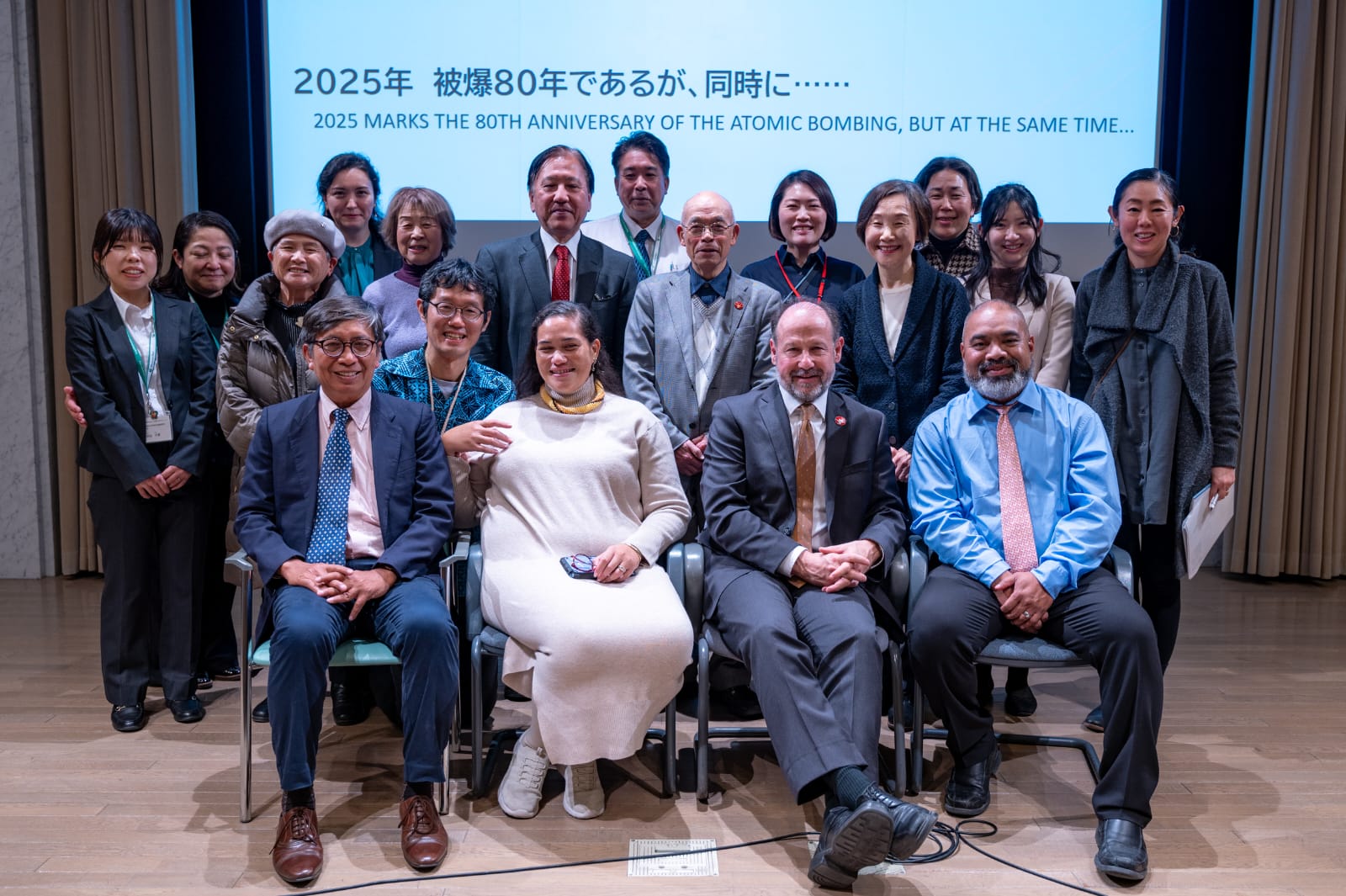Thursday, 22 May 2025 – As the digital economy spreads rapidly across Southeast Asia, a powerful new shadow report—led by platform workers and their allies—calls out the growing injustices faced by ride-hailing and delivery drivers in the region.
Past Events
On 8-9 February 2025, Mr. Muhadi Sugiono, Senior Researcher and Lead Campaigner at the Institute of International Studies, Universitas Gadjah Mada, participated in the International Civil Society Forum to Abolish Nuclear Weapons, in Tokyo, Japan.
Yogyakarta, 24 Oktober 2024 – Dalam rangka mewujudkan masyarakat yang lebih demokratis melalui aktivisme digital, Institute of International Studies, Universitas Gadjah Mada (IIS UGM), berkolaborasi dengan British Council Alumni UK Social Action Grant, mengadakan peluncuran kelas daring yang berjudul “Netizen Juga Citizen: Menyemarakkan Aktivisme Digital”.
Sebagai bagian dari kegiatan penelitian berjudul Contesting Loss for Indonesian Communities in Climate Crisis (CLICCC), Institute of International Studies, Universitas Gadjah Mada (IIS UGM) bersama dengan Murdoch University serta anggota konsorsium CLICCC, mengadakan serangkaian acara diskusi dan pemaparan hasil penelitian pada tanggal 7 – 11 Oktober 2024.
Yogyakarta, 8 November 2024 – The Institute of International Studies, Universitas Gadjah Mada (IIS UGM), hosted an annual convention of GO-SOUTH 2024, themed Global South in Geopolitical Turbulence.
Yogyakarta, 10 Agustus 2024 – Institute of International Studies, Universitas Gadjah Mada (IIS UGM) menyelenggarakan kegiatan expert panel bersama Circular School Program Partnership: Indonesia Green Principal Award (IGPA) dengan tema Strategi Membangun Niche dalam Transisi Sekolah Sirkular.
Terdapat dua tujuan yang ingin dicapai melalui kegiatan expert panel ini.
On July 9th – 11th, 2024, the Association for Asian Studies and Universitas Gadjah Mada organized the AAS-in-Asia Conference 2024 themed Global Asias: Latent Histories, Manifest Impacts in Yogyakarta, Indonesia.
Yogyakarta, 27 June 2024 — The Global Engagement Office (GEO) and the Faculty of Social and Political Sciences (FISIPOL), Universitas Gadjah Mada, in collaboration with the Institute of International Studies, Department of International Relations, Universitas Gadjah Mada (IIS UGM), hosted a discussion with the Asia New Zealand Foundation.
Yogyakarta, 21 May 2024 – In order to maintain security, stability, and prosperity in the Asia Pacific region, the European Union continues to strengthen its cooperation framework with countries in the region.










